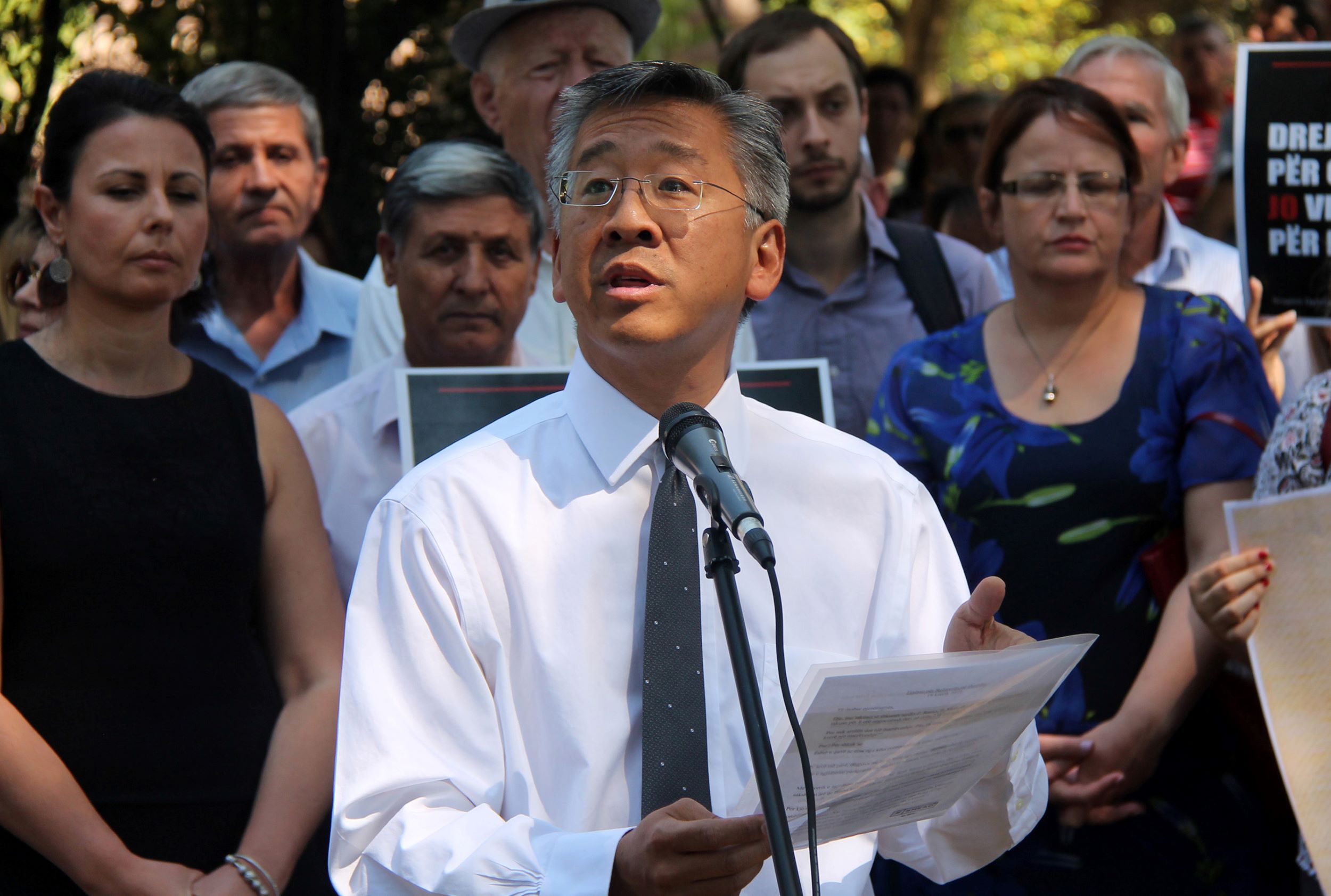The US must stop whitewashing Prime Minister Modi’s crackdown on Indian journalists
There is nothing to praise about the state of press freedoms in India, though America’s Assistant Secretary of State for South and Central Asian Affairs, Donald Lu, a former US ambassador, recently proclaimed otherwise.
Speaking to the Press Trust of India in April, Lu praised Indian journalists for the work they do to support Indian democracy, adding: “I have such respect for the freedom of the press in India. You have India as a democracy in part because you have a free press that really works.”
At the time of his speaking, the BBC was facing ongoing harassment in India - including censorship, office raids by tax department officials and a summons in a defamation case after releasing a documentary critical of Prime Minister Narendra Modi that was banned almost immediately in the country.
Earlier this year, the government created a “fact-checking unit” dedicated to policing social media platforms and internet providers, giving itself the absolute power to take down any posts about “any business of the central government” deemed to be “false or misleading”. At least 10 Indian journalists are languishing in jail - several of them under false terrorism charges. One journalist, Devendra Khare, was recently shot by masked men after reporting on an assault committed by the brother of a member of Modi’s ruling Bharatiya Janata Party (BJP).
“Free” is the last word that should be used to describe the press in India. In fact, just weeks after Lu’s comments, the media watchdog group, Reporters Without Borders (RSF), reported that India’s rank on its press freedom index had dropped from 150 in 2022 to 161 in 2023. It was a staggering 11-point plunge, placing India lower on the index than Taliban-controlled Afghanistan - and the blame for that falls squarely on India’s government.
Since coming to power in 2014, Modi and the BJP have undermined all aspects of Indian democracy in their attempt to turn India into a Hindu majoritarian state, where religious minorities - particularly Muslims and Christians - are reduced to second-class citizens. But while the BJP is targeting minority rights through legislation, it’s their authoritarian control over the media that normalises and even glorifies the skyrocketing mob violence and bigotry against Muslims.
Modi’s billionaire friend Mukesh Ambani owns more than 70 media outlets, while another friend, Gautam Adani, recently took over India’s last major independent TV broadcaster, NDTV.
As a result, mainstream Indian media has become a bullhorn for pro-Modi propaganda, conspiracy theories and hate speech. When COVID-19 first broke out, the media was not only directed to whitewash the government’s botched handling of the pandemic, but also fueled anti-Muslim hatred by claiming “Corona jihad” was responsible for the spread of the virus. When young Muslim women - many of them minors - protested Karnataka state’s ban on wearing hijabs in schools last year, the rightwing channel Network 18 ran coverage referring to the protesters as an “al Qaeda gang”.
If Biden and Assistant Secretary Lu truly want to see a 'free press' in India, they should use Modi’s state visit as an opportunity to convey concerns about assaults on press freedom
When four Muslim men were tied to a pole and publicly flogged by police in Gujarat state, Network18 senior editor and anchor Aman Chopra spent six minutes of airtime excitedly asking his crew to show a clip of the incident with “good angles and audio”.
When Israel was bombing Gaza in 2021, Sudarshan News accompanied the story with a doctored image of the Muslim holy city Medina being bombed. Hate speech has become so normalised that the Editors Guild of India compared mainstream Indian media channels to Radio Rwanda, infamously known for broadcasting vitriolic propaganda and hate speech that played a key role in inciting the 1994 Rwandan genocide.
Though there are journalists and news portals who continue to push back against this sort of narrative, the cost can be steep. India’s draconian anti-terror law, the Unlawful Activities Prevention Act (UAPA), is frequently weaponised against journalists who attempt to report on anti-minority violence and discrimination, charging them as terrorists and making it nearly impossible for them to get bail.
Muslim journalist Siddique Kappan spent over two years in prison under false terrorism charges for trying to report on the brutal gang-rape of a Dalit teen. In Kashmir, journalists face internet blackouts, raids, harassment from security forces and the threat of indefinite imprisonment.
Even when journalists aren’t facing terrorism charges, it’s the norm to be flooded with online harassment from Modi supporters. Last year, Muslim journalist and Washington Post columnist Rana Ayyub reported that she had received more than 26,000 rape and death threats over social media for criticising Modi. Mohammad Zubair, co-founder of the news site AltNews and well-known for debunking rightwing propaganda, was arrested after a Hindu far-right Twitter account with a single follower accused him of offending Hindus by tweeting an old Bollywood clip. As RSF puts it, Modi’s India is “one of the world’s most dangerous countries” for upright journalists.
All things considered, it’s telling that Donald Lu chose to praise the “freedom” of India’s press just weeks before the White House officially announced that President Biden would be hosting Modi for a state dinner during his official visit to the United States on June 22. In doing so, Lu has validated those who are seeking to dismantle democracy and the institution of the press in India, affirming Indian far-right propaganda and completely whitewashing Modi’s authoritarian crackdown on journalists and critics as a whole.
If President Biden and Assistant Secretary Lu truly want to see a “free press” in India, then they should use Modi’s state visit as an opportunity to convey concerns about assaults on press freedom, push for the release of all the incarcerated journalists and emphasise the importance of a robust and unrestricted press in a democracy.
Safa Ahmed is an independent Indian-American journalist based in Raleigh, North Carolina
The views expressed in this article are the author’s own and do not necessarily reflect Al Jazeera Journalism Review’s editorial stance




















![Palestinian journalists attempt to connect to the internet using their phones in Rafah on the southern Gaza Strip. [Said Khatib/AFP]](/sites/default/files/ajr/2025/34962UB-highres-1705225575%20Large.jpeg)




















